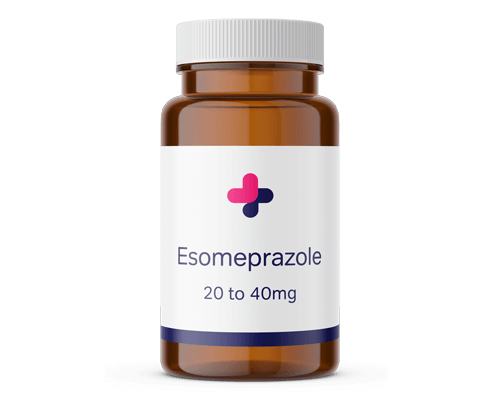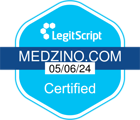What are the side effects from Esomeprazole?
Esomeprazole magnesium and other PPI drugs are generally well tolerated in both short and long term use. The most common side effects include (more than 1 in 100 people):
- Diarrhea
- Nausea/vomiting
- Headaches
- Dizziness
- Abdominal pain
- Dry mouth
These effects are usually mild and fade away once you stop taking Esomeprazole. If the symptoms become bothersome or do not disappear, inform your doctor right away.
More serious side effects include (less than 1 in 1000 people):
- Joint pain
- Skin rash/blisters/swelling
- Yellow skin/eyes (jaundice)
- Dark or bloody urine
- Fatigue
- Irregular heartbeat
- Muscle spasms/seizures
In rare cases, some users may experience a serious allergic reaction (anaphylaxis) to Esomeprazole exhibited through swelling of the mouth, lips, tongue or throat, difficulty breathing or talking, tightness in the chest or throat or wheezing.
If you experience any of these symptoms, discontinue use and inform your doctor immediately.
Precautions
Research suggests that the use of PPI drugs, including Esomeprazole may be associated with an increased risk of osteoporosis-related fractures including the hips, wrist and spine. This is due to the drug’s interference with calcium absorption which can weaken the bones.
Prolonged use of Esomeprazole can also inhibit nutritional absorption including vitamin B12 and magnesium, due to reduced levels of gastric acid. Low magnesium levels have also been linked to an increased risk of heart attacks.
The risk of developing Clostridium-difficile – an infection of the colon caused by an increase in bacterial toxins – is also increased with PPI drugs.
Contraindications
Esomeprazole is not suitable for those who:
- Have had an allergic reaction to any ingredients in Esomeprazole or any other PPI drugs, including Omeprazole or Lansoprazole.
- Suffer from liver problems or lupus.
- Are unable to absorb certain types of sugars, including glucose or sucrose.
- Have undergone or are due to undergo surgery or hospital treatment, such as an endoscopy.
Children should not be given Esomeprazole unless it is prescribed by a doctor.
Esomeprazole is not usually recommended during pregnancy or while breastfeeding due to the lack of firm evidence relating to its safety.
Drug interactions
Esomeprazole can interfere with other medications you may be taking, increasing your susceptibility to side effects. Due to decreased levels of stomach acidity, it can also affect the way other drugs are absorbed, therefore reducing efficacy.
Before taking Esomeprazole, inform your doctor about any other prescription or non-prescription drugs you may be taking including any vitamin or herbal supplements, particularly the following:
- Blood thinners
- Antifungal medicines
- Heart medicines
- HIV medicines
- Anti-epilepsy medicines
- Antibiotics
- Antidepressants
- Iron supplements
- St. John’s Wort
- Methotrexate (used to treat cancer, psoriasis or rheumatoid arthritis)
- Tacrolimus (used to treat eczema or to prevent organ rejection following a transplant)
















Quick and discreet
I ordered Azithromycin tablets for chlamydia treatment, received it next day in a brown discreet pack, and cheaper than all other pharmacies, can't ask for more
Jordan McCann